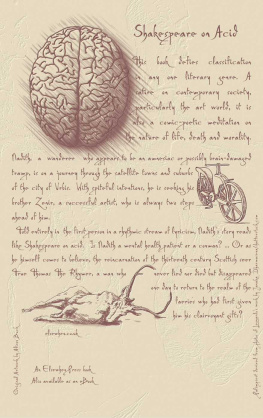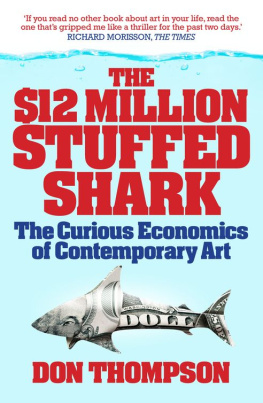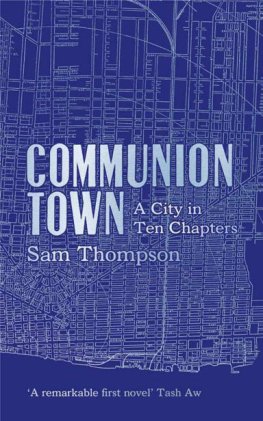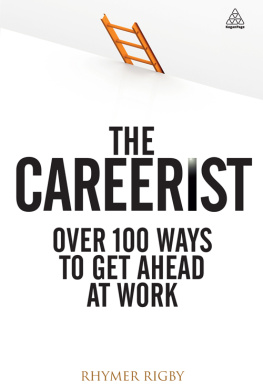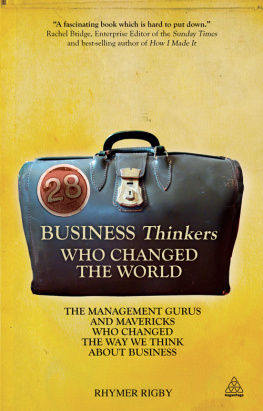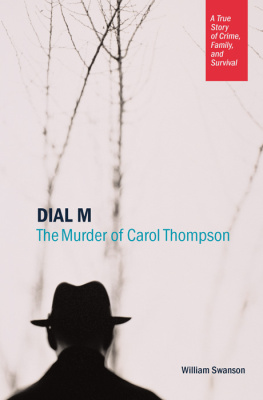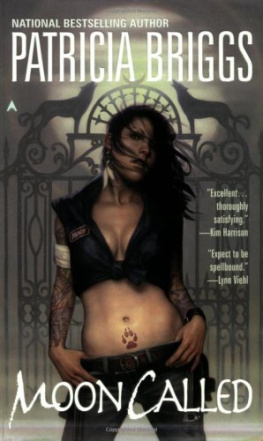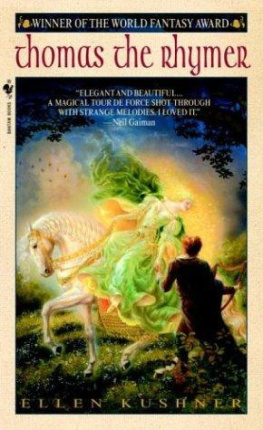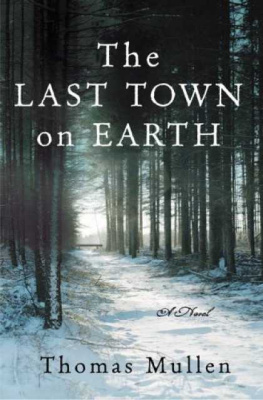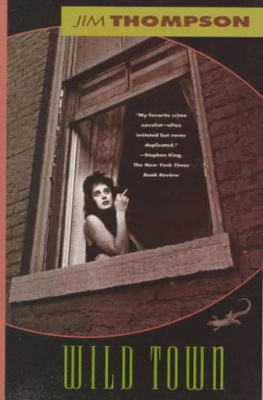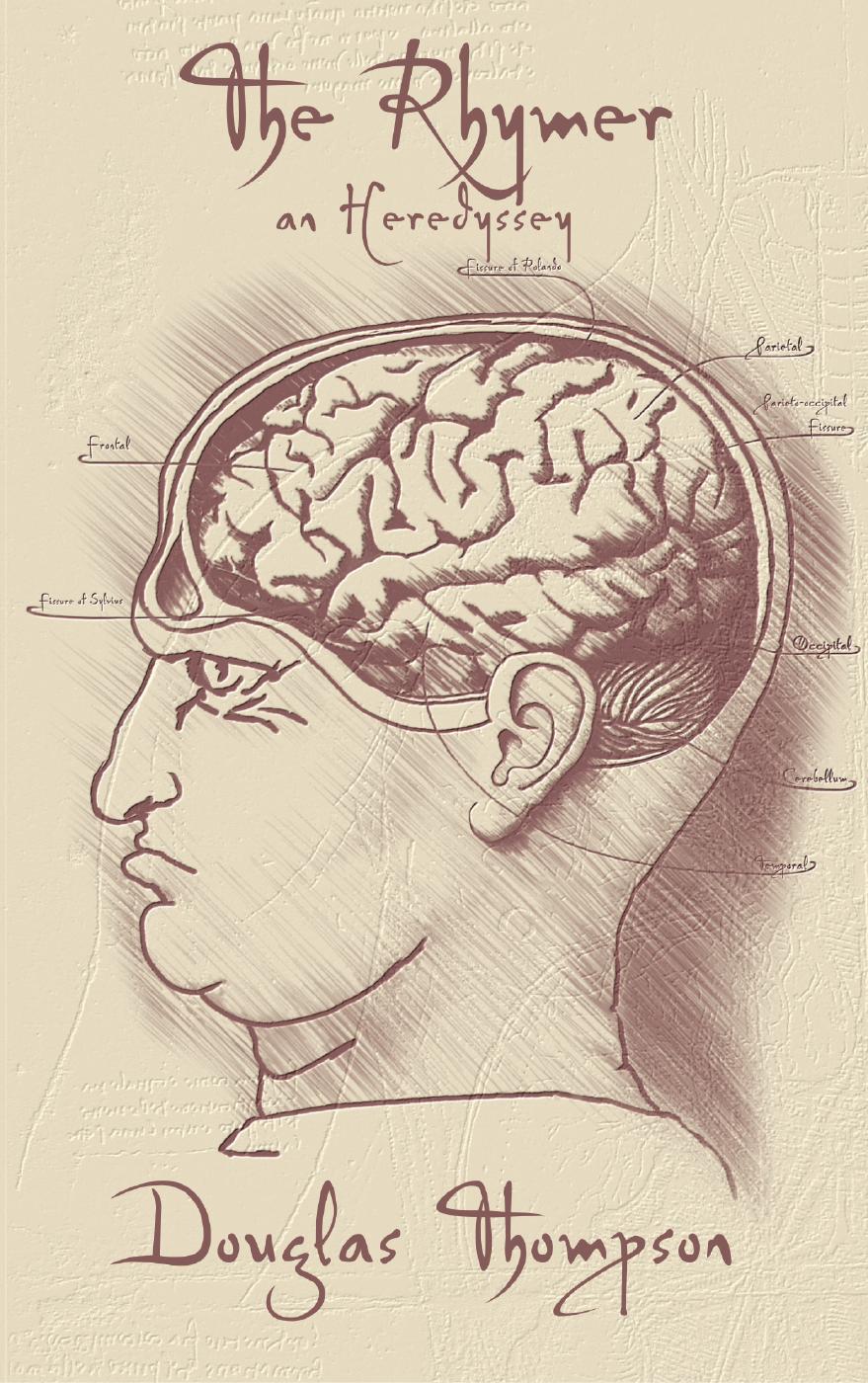Also by Douglas Thompson from Elsewhen Press
Entanglement



Elsewhen Press
The Rhymer, an Heredyssey
First published in Great Britain by Elsewhen Press, 2014
An imprint of Alnpete Limited
Copyright Douglas Thompson, 2014. All rights reserved
The right of Douglas Thompson to be identified as the author of this work has been asserted in accordance with sections 77 and 78 of the Copyright, Designs and Patents Act 1988. No part of this publication may be reproduced, stored in a retrieval system or transmitted in any form, or by any means (electronic, mechanical, telepathic, magical, or otherwise) without the prior written permission of the copyright owner. Part of Part One appeared as Heredyssey in Sein Und Werden Magazine Summer 2013 Not Quite Human issue; and part of Part Two appeared as The Rhymer in Ambit Magazine Issue 213, July 2013. Rupert the Bear is a trademark of Express Newspapers; National Trust is a trademark of The National Trust (Enterprises) Ltd. Use of trademarks has not been authorised, sponsored, or otherwise approved by the trademark owners. The passage quoted in Part Three is from The Riddle of the Sands by Erskine Childers, published by Smith, Elder & Co. in 1903.
Illustrations Alison Buck, 2014. All rights reserved
Elsewhen Press, PO Box 757, Dartford, Kent DA2 7TQ
www.elsewhen.co.uk
British Library Cataloguing in Publication Data.
A catalogue record for this book is available from the British Library.
ISBN 978-1-908168-41-2 Print edition
ISBN 978-1-908168-51-1 eBook edition
Condition of Sale
This book is sold subject to the condition that it shall not, by way of trade or otherwise, be lent, re-sold, hired out or otherwise circulated in any form of binding or cover other than that in which it is published and without a similar condition including this condition being imposed on the subsequent purchaser.
This book is copyright under the Berne Convention.
Elsewhen Press & Planet-Clock Design are trademarks of Alnpete Limited
Converted to eBook format by Elsewhen Press
This book is a work of fiction. All names, characters, places, galleries and events are either a product of the authors fertile imagination or are used fictitiously. Any resemblance to actual events, venues, places or people (living, dead or regressed) is purely coincidental.

For Rachel Kendall
In memory of Joel Lane (1963-2013)
the greatest of all of us.

When Douglas Thompson submitted the first part of The Rhymer (titled Heredyssey) to Sein und Werden it made me feel a little bit giddy. Id published his work in previous issues and was a big fan of this self-labelled Glasgow-surrealist but here was a story unlike anything I had read before. In the best possible way. Here was an excerpt, workable as a stand-alone piece, written almost entirely in verse. Obviously Thompson is a risk-taker, a dare-devil member of the literati, to propose such a feat as this. Should the measurements be out of sync, the angles a bit skewed or the trajectory off course, this could have been disastrous. But Thompsons risks are calculated. He is a master craftsman, pulling out all the stops with exceptional timing (comic and otherwise).
When I accepted Heredyssey I told Thompson I would love to read a full-length novel written in the same poetic style. I knew Heredyssey was already a longer piece but when Thompson told me there was a whole novel in the pipeline I was thrilled. Barely a couple of months down the line, Heredyssey, now titled The Rhymer, appeared in my inbox.
Let me just say, at this point, that Thompson works part-time as an architect (and full-time as a writer if his literary output is anything to go by). This is not something Im mentioning in passing. To me, architecture is one of those mysterious schools that straddles both science and art, one that demands artistic freedom within the constraints of mathematical equation. Taking much of his influence from the whorls and fronds of nature, the architect can create in months what nature took a billion years or just a few seconds to develop. But whether he is inspired by the crystal or the snowflake the architect must be a methodical, patient perfectionist with a healthy mix of left and right brain activity, someone who can work on the delicate minutiae whilst keeping sight of the bigger picture. And these traits are not limited to Thompsons day job. I believe he builds his stories in much the same way he plans his physical structures. To Thompson every word, every sentence is significant. He is one of those authors for whom writing is more than just the telling of a good story. It is a finely honed craft. This is true of all his work, not just The Rhymer. Take, for instance, his short story My (Ruined) Father, an immaculately constructed piece of prose that juxtaposes the slow disintegration of a building with the deteriorating health of the narrators father.
I have seen the old photos. My father had a fine face (faade) once, a good (bone) structure, captivating pair of big eyes (windows), and a strong dignified looking mouth (shopfront).
Evocative, tender and visual, Thompsons writing creates feeling in everything, be it natural or man-made. Similarly in The Fallen Woman he creates emotion and intuition in physical constructs, merging the sentient with the composite and turning solid into fluid.
Look: a falling figure hits the water and half the world collapses inwards. Lurching of heart and lungs. Towerblocks double-over in pain, bridges spin round in half-recognition.
Just as Duchamps Woman Descending a Staircase was an attempt to portray movement and altered perspectives, Thompson uses rhetoric to expose every point of view, every narrative and every context until characters begin to converge in bas-relief. Because emotions are never just black or white, and personality is not a linear composition, Thompsons characters are complex and intricate with changing attitudes and inconsistent behaviours. In what may almost be called a study of form, another work by the author Sylvow begins with a man taking several photographs of a flower, from every conceivable angle, only to discover that every flower and leaf has turned itself towards him. In Thompsons world nothing adheres to the laws of physics, solid floors liquefy, human-machine hybrids emerge and reality and memory distort and converge, and like Eschers unfathomable stairs and Dalis melting clocks, The Rhymer is a visual mind-bender, a puzzle to be solved.
But Thompson never insults his readers intelligence by giving the game away. He does drop a few screwy clues here and there and plants some cock-eyed signs to lead us on our merry way, but never does he give us more than he wants to. The fun is in solving the mystery ourselves after all and The Rhymer is a mystery, albeit an existential one. Who is this man, this philosopher-poet who seems to have lost his memory of time and place? Is he a seer? A mad man? He is searching, but for what exactly? Is it love that drives him on? Or the question of self? Or the even bigger question of God? Like a character in a computer game he must find the clues along with us, gaining points with every correct answer and to reach the highest level is to reach enlightenment is to discover who he actually is.

